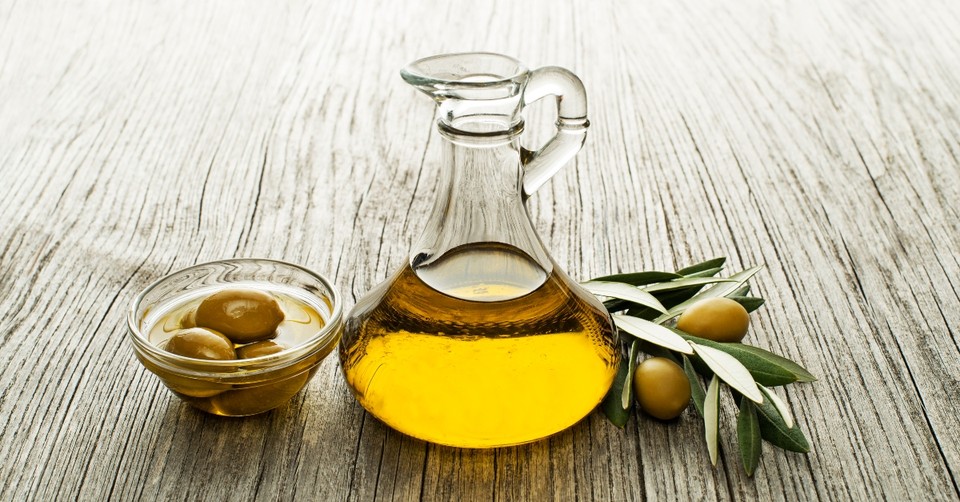What Is the Balm of Gilead according to the Bible?

If you read through the Bible each year, you’ll discover three scriptures that reference the balm of Gilead. But unless the verses are considered together, it is easy to miss their significance.
The first mention of the balm is from Genesis 37:25-26. The words read, “As they sat down to eat their meal, they looked up and saw a caravan of Ishmaelites coming from Gilead. Their camels were loaded with spices, balm , and myrrh, and they were on their way to take them down to Egypt.” This portion of Scripture records the story of Joseph who was sold into slavery by his jealous brothers. The traveling merchants purchased the youth, then delivered him to Egypt. Although it might seem as though the mention of spices, balm, and myrrh are superfluous details, they are recorded intentionally. We’ll explore those purposes later in this article.
The other two references are found in the book of Jeremiah. They concern the prophet’s lament over God’s impending judgment of Judah and Israel as well as God’s disciplinary actions against unbelieving nations (Jeremiah 8:21-22, Jeremiah 46:11). Based on these three verses, we discover that the balm produced in the region of Gilead was both valuable and rare.
What Is the Meaning of "There Is A Balm in Gilead"?
If we circle back to the book of Jeremiah, we read about the prophet’s dismay as he foretells Israel about its coming captivity. “Is there no balm in Gilead, Is there no physician there? Why then is there no recovery for the health of the daughter of my people?” (Jeremiah 8:22 NKJV). These words are the heart-cry from God’s prophet who used the example of a FRANK medicine of the day to create a picture of spiritual healing.
First, Jeremiah points out that spiritual healing for Israel and Judah was readily available through God. The Lord was the balm that could completely heal and restore the nation’s hurts. Hadn’t He provided spiritual leaders, or physicians of the soul, like Jeremiah to guide the people?
As the prophet continues, he pronounces words over the land of Egypt, as well. “Go up to Gilead and take balm, O virgin, the daughter of Egypt; In vain you will use many medicines; You shall not be cured” (Jeremiah 46:11 NKJV). Jeremiah observes that God’s judgment extends to nations who do not know Him. Here, Jeremiah shares the vision he has about the battle between Egypt and the Babylonians in Carchemish near the Euphrates River. Although the Egyptians were a world power at the time, King Nebuchadnezzar’s army would overpower them, and the demoralized army would return home traveling through the land of Gilead. Based on Jeremiah’s prophecy, Egypt would never return to heights of prominence.
What meaning, then, does the Balm of Gilead have for us? From Jeremiah, we discover that the Balm of Gilead means spiritual health. Even though God had delivered Israel from slavery and they had walked through the Red Sea, the people still looked elsewhere for spiritual fulfillment. They even worshipped other gods. Eventually, the chosen people of God learned that spiritual fulfillment is found in no one other than Christ.
For the Christian captured by sin, God is eager to provide healing. We only need to turn from our sin, or repent, and seek His will in our lives. Others may not yet have a relationship with Jesus. In Jeremiah’s time, we see this represented by the country of Egypt. Many probably hadn’t heard of Israel’s God and few knew what made Him different than the gods of wood and stone they were accustomed to worshipping. But God yearns for all people to know Him. You can read more about how to invite Him into your life here.
Now that we’ve dug deeper into the verses in Jeremiah, let’s reconsider Joseph’s plight. Thrown into a pit, his envious brothers were eager to be rid of him. A traveling group of Ishmaelites who traded goods—including the balm of Gilead, arrive on the scene. Ishmaelites were distant, often unfriendly, relatives of Israel. But the meaning of Ishmael is key—it means, “God that hears.” Despite the boy’s desperate situation, God had not forgotten him. Instead, the Lord provided a way out of the pit and a road leading to the purpose.
The writer also tells us the “camels were loaded with spices, balm , and myrrh.” I believe these details are important for a few reasons. First, Joseph would have recognized these items. Because God had given him unusual prophetic insight, I believe Joseph would have been encouraged by their presence as he realized God was with him and able to heal any wound, emotional or spiritual.
Not only that, but these items—frequently associated with Jesus, are listed in the Genesis account because Joseph is a type of Christ. He was 1) a shepherd, 2) rejected and abused by those he loved, 3) wrongfully accused of a crime and given unjust punishment, and 4) raised to a position of prominence to rescue those in need. From this verse, then, we are reminded not only that God hears our cries for help in every situation, but that He is the one to whom we can turn for help.
What Was Gilead Known For?
Gilead, an area located in modern-day Jordan, was a mountainous region east of the Jordan River first mentioned in scripture in Genesis 31. This section of the Bible details Laban’s pursuit of his son-in-law after Jacob unexpectedly fled from Laban and his oppressive demands. Unable to outrun Laban and his men, Jacob faced his adversary in the hill country where they made a covenant with one another—a “heap or mass of testimony.”
Most well-known for its spices and ointments, Gilead was especially celebrated for the balsam plant or tree which was used to produce its most precious commodity, the Balm of Gilead. This balm could either be applied to cuts, burns and wounds or it could be used in the embalming process to mask the scent of rotting flesh (Luke 23:56). The title, Balm of Gilead, also provides important clues about the process required before being made useful. According to Strong’s Concordance, the Hebrew word for balm, tsoriy, means to crack as pressure, or leak. While the tree no longer exists, the healing resin either had to be forced from the stems and leaves of the plant by piercing them, or the resin leaked from the tree through open pores or wounds.
Why Is the Balm of Gilead so Important for Christians?
The Balm of Gilead is a powerful symbol of Christ’s power in the life of a believer beginning with the initial covenant established in the book of Genesis. Like Laban with Jacob, we have an enemy who “seeks to steal, kill, and destroy,” but once Christ is our Lord the covenant is sealed. There is a testimony that stands as an agreement between heaven and hell. Satan knows He has no power over those who belong to God.
This was made possible because the Balm of Gilead, the Great Physician, was pierced like the tender root of the balsam plant. In the same way that the leaves of the plant were thrust through to extract the resin, Jesus was broken that we might benefit from His wounds. We received new life through the one tree—the cross upon which Jesus died.
Further Reading
What Did Jeremiah Mean by 'There Is Balm in Gilead'?
Photo credit: ©Getty Images/dulezidar

This article is part of our larger Holy Week and Easter resource library centered around the events leading up to the death and resurrection of Jesus Christ. We hope these articles help you understand the meaning and story behind important Christian holidays and dates and encourage you as you take time to reflect on all that God has done for us through his son Jesus Christ!
What is Lent? It's Meaning and Why We Celebrate
When is Lent? When Does Lent Start and End?
What is the Meaning Ash Wednesday?
What is Holy Week?
What Is the Meaning of Palm Sunday?
What is the Meaning of Holy Monday?
What is Maundy Thursday?
What Is Good Friday and Why is it Good?
Good Friday Prayer
What Does Holy Saturday Mean?
What Is the Easter?
Easter Prayers
Powerful Facts About the Cross of Jesus
Originally published March 15, 2021.




